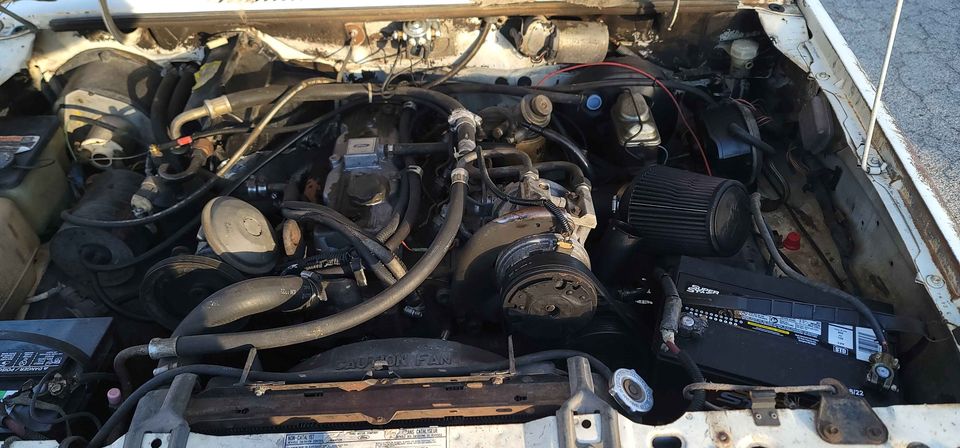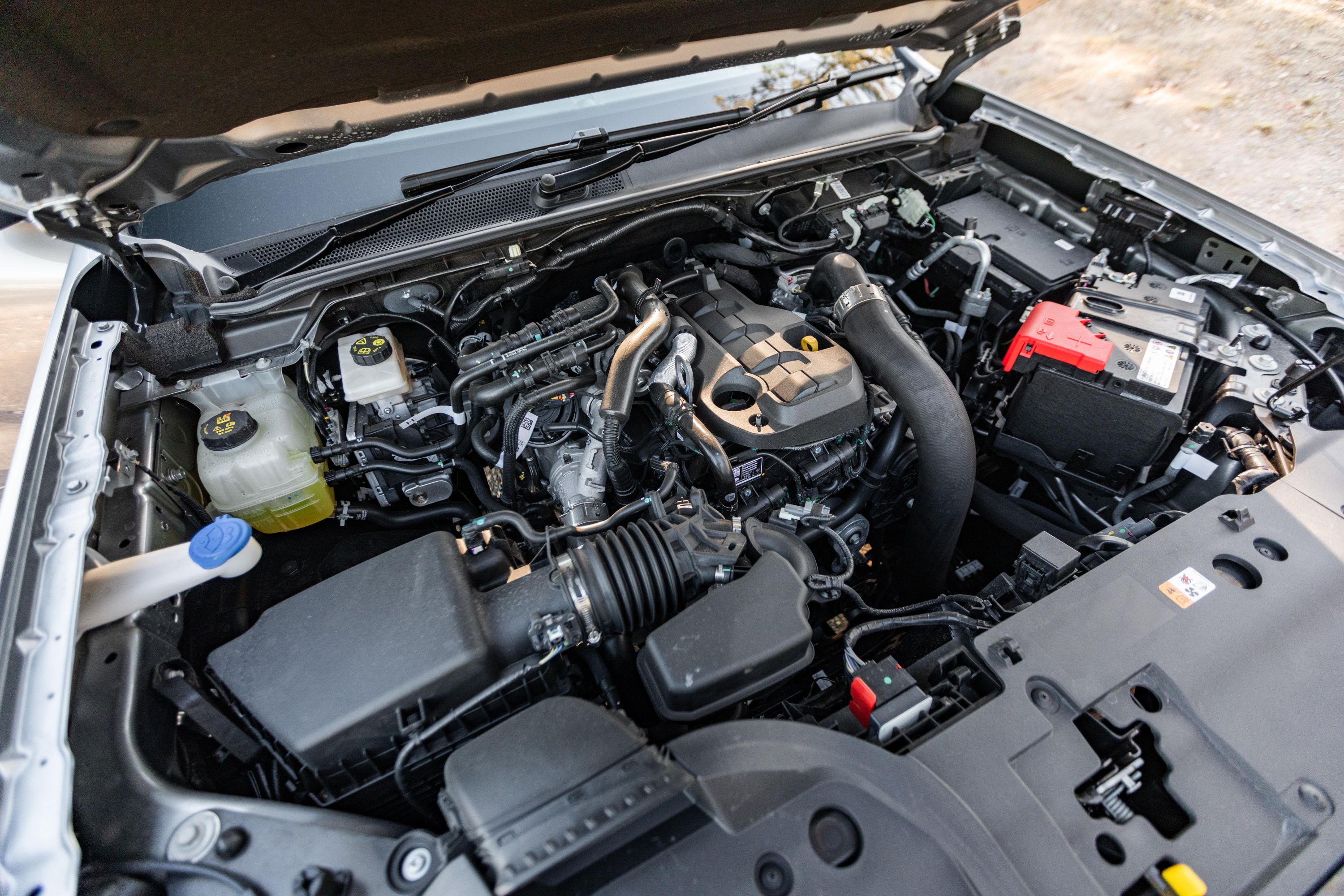Explore the Key Features of the 2.2 Ford Ranger Engine and Its Fuel Efficiency
Explore the Key Features of the 2.2 Ford Ranger Engine and Its Fuel Efficiency
Blog Article
What Makes a Car Engine Run Smoothly: Leading Tips for Optimal Treatment
The smooth operation of a vehicle engine is fundamental to both efficiency and longevity, making optimal treatment a necessary obligation for automobile owners. Key techniques, such as normal oil adjustments, maintaining coolant degrees, and keeping an eye on air filters, are vital yet typically neglected. The significance of inspecting trigger plugs and making certain correct tire pressure can not be understated. Understanding exactly how these components adjoin can boost not only the effectiveness of your car but likewise your general driving experience. What specific steps should you focus on to ensure your engine remains in peak condition?
Normal Oil Changes
Among the most critical aspects of vehicle maintenance is ensuring your engine obtains normal oil changes. Engine oil lubricates internal parts, reduces friction, and assists keep optimal operating temperature levels. With time, oil degrades due to heat, contaminants, and the all-natural by-products of burning, resulting in lowered efficiency and possible engine damages.
A lot of suppliers recommend transforming the oil every 5,000 to 7,500 miles, but this interval can differ based on driving conditions and oil type. For circumstances, artificial oils might allow for longer intervals in between adjustments. Regular oil modifications not just boost engine efficiency yet likewise boost gas performance, as clean oil promotes smoother operation.
Neglecting oil changes can result in sludge accumulation, which impairs circulation and can lead to extreme engine concerns. It is vital to check oil degrees on a regular basis and keep an eye on for any uncommon adjustments in color or consistency, which might show contamination or degradation.

Keeping Coolant Levels
Maintaining correct coolant levels is important for avoiding engine getting too hot and guaranteeing optimal performance. The coolant, typically a mixture of water and antifreeze, circulates via the engine, absorbing warmth and avoiding thermal anxiety. Insufficient coolant can result in increased engine temperature levels, which may create severe damages and even overall engine failure.
To preserve optimal coolant degrees, routinely evaluate the coolant reservoir, generally located in the engine bay. Make sure the coolant is loaded to the suggested mark, as indicated in your automobile's owner handbook. It is suggested to check the degrees at least once a month or eventually trips, especially throughout severe climate condition.
If you notice that the coolant degree is continually low, there may be a leak in the air conditioning system, which must be attended to quickly to prevent more issues. 2.2 ford ranger engine. Furthermore, flushing the coolant system every two to three years can help remove any kind of accumulated particles and ensure efficient heat exchange
Monitoring Air Filters

It is advised to inspect the air filter every 12,000 to 15,000 miles, check this site out or a lot more regularly if driving in dusty or negative conditions. A straightforward aesthetic examination can typically expose whether the filter is filthy or damaged. If the filter appears blemished or has noticeable dust accumulation, it must be replaced quickly.
Utilizing a premium air filter designed for your details automobile model can better improve engine performance. Furthermore, some lorries may profit from recyclable filters that can be cleansed and reinstalled, offering a affordable and ecologically friendly alternative.
Inspecting Spark Plugs
Spark plugs are important elements of a vehicle's ignition system, directly influencing engine efficiency and performance. They why not look here develop the trigger that sparks the air-fuel blend in the combustion chamber, facilitating the engine's power generation. Normal examination of trigger plugs is crucial for preserving optimum engine feature and stopping prospective concerns.
Throughout an examination, try to find indicators of wear or damages, such as splits, carbon buildup, or extreme gap widening. A healthy trigger plug typically displays a light brownish or tan shade. Dark soot or oil deposits can indicate inappropriate burning, while a raw or white appearance may recommend getting too hot. Both problems need instant focus to stop more engine damages.
It's suggested to inspect stimulate plugs every 30,000 miles, or as recommended in your lorry's proprietor handbook. In addition, consider changing them according to the producer's standards, as worn or old spark plugs can result in misfires, lowered fuel effectiveness, and raised emissions.
Surveillance Tire Stress
Under-inflated tires can lead to reduced gas efficiency, raised tire wear, and endangered handling. Normal surveillance of tire stress is necessary for ideal vehicle operation.
Tire stress should be checked a minimum of once a month and before lengthy journeys. Make use of a reputable tire pressure scale to determine the pressure when the tires are chilly, preferably prior to the automobile has actually been driven for a minimum of three hours. Refer to the car's proprietor manual or the placard situated on the driver's side door jamb for the supplier's recommended pressure levels.
It is necessary to note that tire pressure can vary with modifications in temperature level; a drop of 10 ° F can result in a 1-2 psi reduction in stress. Additionally, visually check tires for any kind of indicators of wear or damages throughout your surveillance routine. Maintaining appropriate tire stress look at this now not just boosts vehicle safety yet additionally boosts gas effectiveness and extends tire life, eventually contributing to a smoother engine performance.
Conclusion
In final thought, keeping a cars and truck engine's smooth operation requires thorough attention to a number of crucial elements. Inevitably, an aggressive technique to engine care is essential for making sure dependability and capability over time.
One of the most vital aspects of vehicle maintenance is ensuring your engine obtains normal oil modifications. Engine oil lubricates internal parts, reduces rubbing, and aids keep ideal operating temperature levels. Regular oil modifications not just improve engine efficiency however also improve gas effectiveness, as clean oil promotes smoother procedure.
Not enough coolant can lead to increased engine temperature levels, which might cause severe damages or also complete engine failure.

Report this page